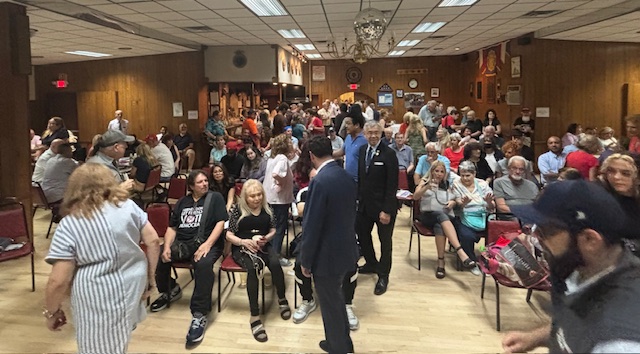Community boards are important to Downtown life. They represent the city’s best effort to give local community members a voice in decisions that directly affect them.
That’s why we become concerned when a community board seems not to be functioning up to its potential. Specifically, a recent vote by the Community Board 2 Business Committee has caused concern. Ideally, a community board reflects the sentiments of the community it represents. Yet, in this case, the Business Committee’s vote — against the expansion of the boundaries of the
Village Alliance business improvement district — seems diametrically opposed to community sentiment.
At the committee’s meeting earlier this month when the BID’s proposal was considered, 10 people turned out in favor of the idea, while no one from the public spoke against it. Also, 30 letters of support for the BID’s plan were presented to the Business Committee’s chairperson. Honi Klein, the Village Alliance’s executive director, held outreach meetings to various stakeholders — from residents to merchants — so one would think if someone had strong objections, they would have come to the committee meeting, or at least written a letter, to make their feelings known. But there was no opposition.
Yet, for some reason, the committee took it upon itself to deny the proposal. Fortunately, the Business Committee’s resolution was reversed by the full community board. Yet, the reasons the Business Committee gave for opposing the BID’s expansion were perplexing, such as, if BID members failed to pay their special tax assessments, their properties would be subject to seizure. However, according to the Department of Small Business Services, this is simply false.
The committee also claimed BID’s replicate city services. Yet, as the Village Alliance’s Klein makes clear, the BID does plenty that the city doesn’t, such as marketing and regular graffiti removal. Yes, BID workers empty garbage cans more frequently than the Department of Sanitation — but what’s so awful about that? It keeps the streets cleaner.
The Village Alliance also led the effort to widen Eighth St.’s sidewalks, which were narrowed in the last century to accommodate a trolley.
In short, the Village Alliance is a high-functioning BID with a good track record. Some speculate there may have been some personal animus at work in the committee’s vote — perhaps over a past clash over sidewalk cafe chairs. We may never know for
sure.
This is the same committee that saw its former chairperson, Bob Rinaolo, resign because of a conflict of interest. Heading the committee, Rinaolo drew scrutiny for his advocacy against a liquor license application by a former partner and his own puzzling, aborted application for a rooftop cafe.
Also, there was the question of an anonymous letter attacking the BID placed by the board’s district manager in board members’ packets. We’re not sure there is ever a need for anonymous letters at the community board. Again, the information in the letter was simply inaccurate. And there was no opportunity to question the attacker.
It’s disappointing to see the Greenwich Village community board functioning like this. More professionalism is needed.































